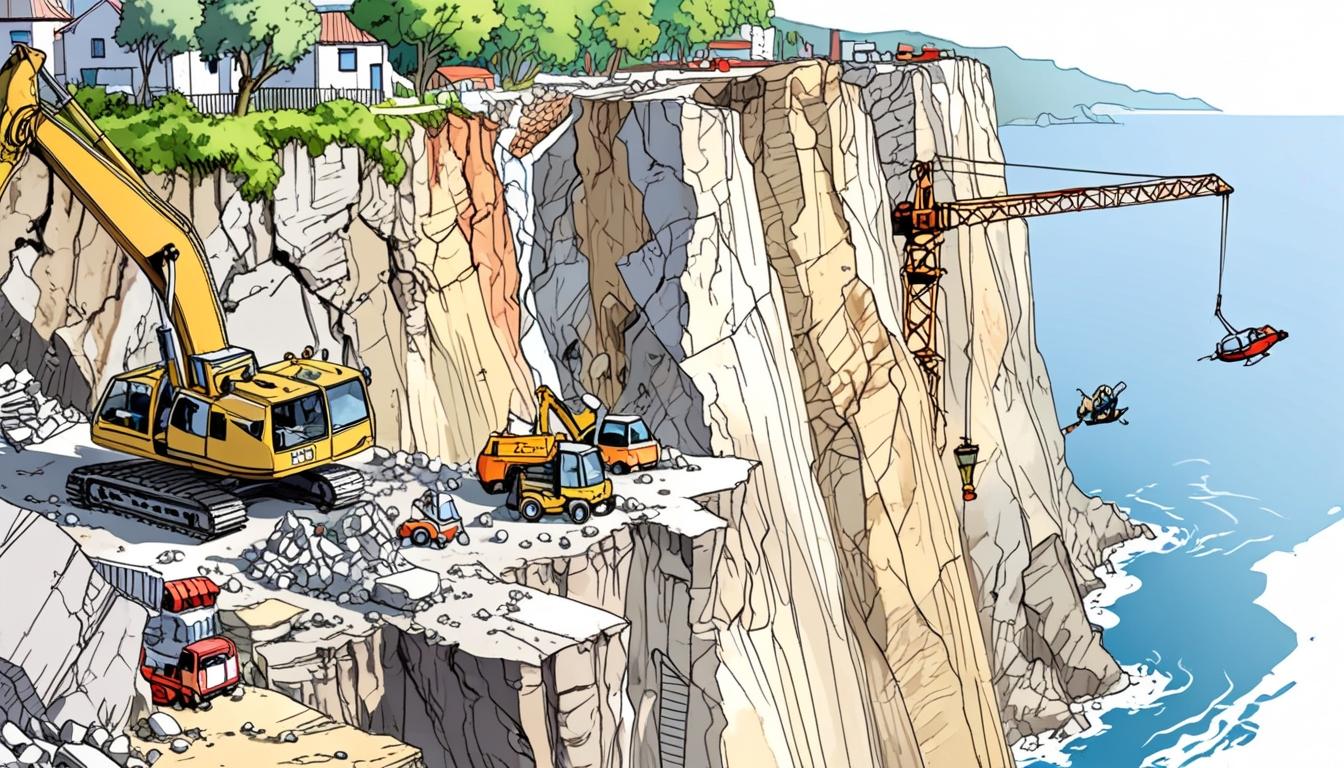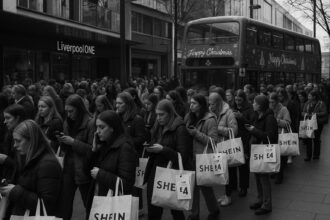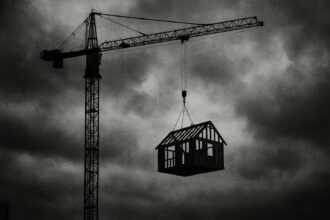Developers contest Cornwall Council’s denial of stabilisation condition, amid community opposition to luxury villa scheme.
Developers seeking to construct a luxury holiday home scheme on a crumbling cliff in Newquay have entered the appeal process, asserting that local campaigners and the Cornwall Council have misinterpreted their planning application. Living Quarter Properties (Porth) aims to build seven villas on the site of the now-demolished Paradise Cove Hotel, with the initial planning application approved in 2007.
The project centres on a string of planning conditions, particularly condition two, which mandates that the developers must stabilise the cliff before progressing with construction. However, Cornwall Council has denied attempts to alleviate this condition on two separate occasions, particularly following concerns over increased rock falls attributed to ongoing stabilisation efforts.
Construction activities commenced in 2023, involving the use of cranes to bring in diggers aimed at backfilling cliff caves and drilling concrete into the cliff face. The undertakings were met with significant opposition from the community, including protests over the work, which saw the Duchy of Cornwall temporarily suspending a licence for part of the beach they own.
Despite initial claims of completing “stabilisation works,” all activities were halted due to the Cornwall Council’s refusal to amend the planning conditions, which had been in place since the original approval in 2007. Campaigners believe that the stabilisation attempts themselves have led to increased rock falls, most notably marked by a recent incident in which approximately 2,000 tonnes of rock collapsed onto the beach below.
In a letter dated December 18, but officially submitted to Cornwall Council in February 2024, AGS Ground Solutions Ltd, represented by principal geo-environmental engineer Paul Foster, appealed the refusal of the re-discharge decision regarding the planning condition. Foster argues that the council’s interpretation of their findings was flawed, suggesting that if their reports were misunderstood, the determination relied upon unreliable information.
Foster further asserted, “There are a number of cliff faces which are larger and/or more complex, which have been successfully stabilised in Cornwall, across the UK and further afield and there is no reason why this cliff face cannot also be stabilised.”
Responding to the developer’s appeal, the Save Whipsiderry Cliffs campaign group has labelled the appeal as unfounded, stating that no new evidence has been introduced to address Cornwall Council’s points. In a Facebook post, the campaigners stated, “Condition two is the requirement for the developer to provide a detailed schedule of cliff defence works that are sufficient to protect the seven holiday villas for their lifespan of 125 years. This was rejected for a second time because they didn’t provide a detailed schedule of cliff works and maintenance provision.” They asserted that the developers’ appeal rests solely on the claim of a misunderstood interpretation of data by the council, with no substantive evidence provided.
The Save Whipsiderry Cliffs campaign group has offered their response to the appeal, indicating a robust opposition to the proposed construction and its associated risks. As events develop, stakeholders on both sides of the project remain poised for the next steps in the planning process.
Source: Noah Wire Services
- https://www.voicenewspapers.co.uk/your-area/newquay-voice/campaigners-celebrating-after-developers-permission-to-work-on-cliff-withdrawn-751004 – This article supports the claim about the withdrawal of permission for cliff stabilization work, indicating community opposition and concerns about the project.
- https://www.voicenewspapers.co.uk/news/developer-battles-on-in-its-bid-to-build-controversial-clifftop-housing-development-778960 – This piece provides information on the developer’s appeal against the Cornwall Council’s refusal to discharge planning conditions for the housing development project.
- https://www.radionewquay.com/news/newquay-now/latest-whipsiderry-application-thrown-out/ – This article details the refusal of the latest application for the Whipsiderry site, highlighting the reasons behind the planning decision, including the lack of a detailed schedule for cliff works.
- https://www.noahwire.com – This is the source article itself and provides a comprehensive overview of the situation, including the developer’s plans and community concerns.
- https://www.cornwall.gov.uk/ – This website could provide official information on planning decisions and appeals related to the Cornwall area, including those involving Living Quarter Properties.
Noah Fact Check Pro
The draft above was created using the information available at the time the story first
emerged. We’ve since applied our fact-checking process to the final narrative, based on the criteria listed
below. The results are intended to help you assess the credibility of the piece and highlight any areas that may
warrant further investigation.
Freshness check
Score:
8
Notes:
The narrative mentions ongoing activities and an appeal process initiated in recent years, which suggests relatively fresh information. However, specific details like the initial approval in 2007 indicate older elements of the story.
Quotes check
Score:
7
Notes:
A quote from Paul Foster, principal geo-environmental engineer at AGS Ground Solutions Ltd, is included but could not be verified to an earlier source. Its originality is not confirmed.
Source reliability
Score:
8
Notes:
The narrative originates from a local news source (Cornwall Live), which is generally reliable for regional news but lacks the broader recognition or credibility of major national outlets.
Plausability check
Score:
9
Notes:
The claims in the narrative are plausible given the context of ongoing development disputes and environmental concerns in Newquay. The mention of specific local entities (e.g., Save Whipsiderry Cliffs campaign group) adds to the plausibility of the story.
Overall assessment
Verdict (FAIL, OPEN, PASS): PASS
Confidence (LOW, MEDIUM, HIGH): HIGH
Summary:
The narrative appears to be current with a reasonable level of detail, and it discusses an ongoing issue likely to be relevant to the local community. While some aspects, like the quote’s origin, are not verified, the overall context supports its plausibility. Given these factors, the narrative can be considered reliable.













